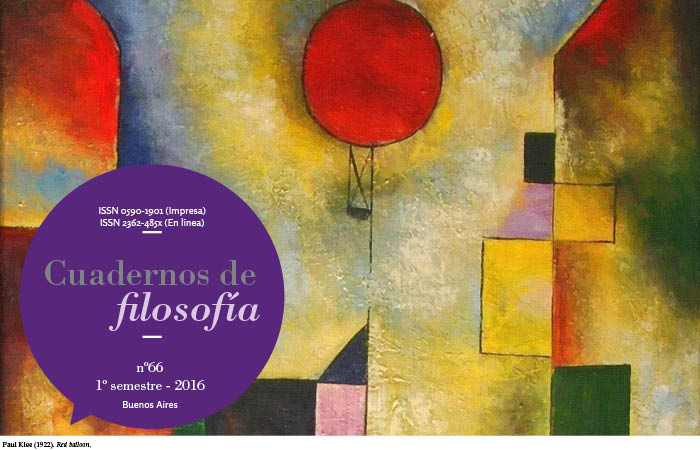El tratado anónimo <i>De spiritu et anima</i>: ¿mediador de la concepción de <i>anima</i> de Hugo de San Víctor para Nicolás de Cusa?
Abstract
This article tackles the issue, if and to what extent it can be stated, that Nicholas of Cusa, in his dialogue Idiota. De mente, recibes the influence of the conception of animaproposed by Hugh of Saint Victor, through the anonymous work De spiritu et anima. The conclusion of the first part is that, despite some terminological and conceptual differences, the core of Cusanu’s anthropology also applies for the anonymous treaty: man, when he knows himself, recognizes that he is dependent and image of the principle. This coincidence should not be striking, when we consider that both are influenced by Neoplatonism and Augustinian tradition. In the second part we confirm, that the triple meaning of anima presented in De spiritu et anima agrees with Hugh of Saint Victor’s proposal in his Didascalion. Both understand the soul as a simple spiritual reality endowed with three powers. On the basis of the conclusions of both sections we may infer, that Nicholas would recieve the inflluence of the Hugh of Saint Victors’ conception of anima through the anonymous treaty. Nevertheless, this assertion should be nuanced with the observation that De spiritu et anima has multiple sources.Downloads
Los autores/as que publiquen en esta revista aceptan las siguientes condiciones:
Los/as autores/as [traductores/as] conservan los derechos de autor/a y ceden a la revista el derecho de la primera publicación, con el trabajo registrado con Licencia Creative Commons Atribución-NoComercial-CompartirIgual 4.0 Internacional, que permite a terceros utilizar lo publicado siempre que mencionen la autoría del trabajo y a la primera publicación en esta revista.
Los/as autores/as pueden realizar otros acuerdos contractuales independientes y adicionales para la distribución no exclusiva de la versión del artículo publicado en esta revista (p. ej., incluirlo en un repositorio institucional o publicarlo en un libro) siempre que indiquen claramente que el trabajo se publicó por primera vez en esta revista.
Se permite y recomienda a los/as autores/as a publicar su trabajo en Internet (por ejemplo en páginas institucionales o personales).
Políticas de detección de plagio
La colaboración de los y las editores/as, autores/as y evaluadores/as de esta revista y la guía de ética de los procesos editoriales se rige por los Principios de transparencia y buena práctica en publicaciones académicas del Committee on Publication Ethics (COPE) disponible aquí.
Todos los artículos enviados a esta publicación serán supervisados mediante una búsqueda online.







